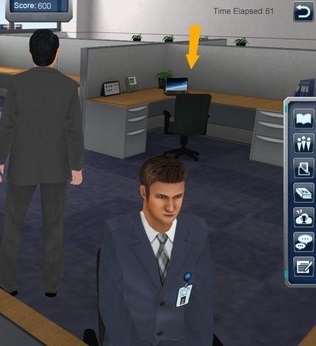Gaming rules could unlock new work achievements
 An organisation which tries to make workplaces better for employees says bosses should think about turning work into a game.
An organisation which tries to make workplaces better for employees says bosses should think about turning work into a game.
Playing games at work has long been grounds for a warning, but the theory that ‘gamification’ can improve productivity is upending the long-held belief that work and fun are mutually exclusive.
Ben Thompson, CEO of the specialist office motivation company Power2Motivate says HR strategies can be created to embrace the enthusiasm many young workers have for gaming, providing a new solution for employee recognition, rewards and training.
Several elements which inspire a player to continue through hours of otherwise monotonous gameplay can be re-applied to the workplace. Powerful motivators from the world of video games include level ascension through skills-based learning and demonstration; the gathering of virtual goods, like stars on a leaderboard; live feeds to continuously update staff on others’ achievements and progression; points gathering for an office auction or charity and other rewards for work-related progress.
Aaron Dignan, author of Game Frame; a book which explores why people are motivated to play games, says businesses can find great success using game mechanics and behavioural tricks to engage employees and customers.
Dignan says: “[Playing games] feels more important to a person than completing their expense report at work because of the way the game system is structured,” he believes 'gamifying' a workplace is like sprinkling “magic engagement dust around the workplace to transform dull disengagement into glittering possibility and purpose, or turn a bland product into a living and breathing social phenomenon.”







 Print
Print